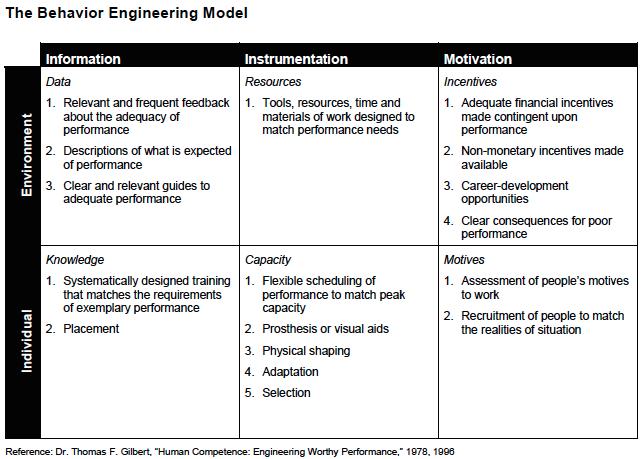The Church Revitalization Podcast – Episode 117
Six strategies to improve volunteer team performance
Every church relies on volunteers to move the ministry forward. From the very beginning, senior leaders understood that sharing the ministry load is the only way to ensure that healthy ministry is happening. In Acts 6, the Apostles recognized that they were doing a bad job managing the daily distribution of food. So they appointed a group of qualified volunteers to innovate, lead, and ensure the job was done to the glory of God. Likewise, if the pastor and staff are responsible for accomplishing every task–large and small–a lot things will fall through the cracks.
The problem is that our volunteer teams are often ineffective, flaky, and fall short of what they could (or should be). If we are being honest, the root cause is often poor management on our part. Volunteers languish, and because we need our volunteers so badly, we don’t confront the problems head-on for fear of burnout. But the solution isn’t to ignore ineffective teams and hope and pray that they change without intervention.
Instead, you could choose to lead the team differently and better. Unfortunately, most church leaders weren’t taught how to manage teams in seminary. Don’t worry; we’ve got your back.
In 1978, Herman Gilbert presented his Behavioral Engineering Model. In layman’s terms, Gilbert asserted that a leader can influence a team member’s performance by focusing on the environmental or external factors that shape performance in three key areas: Information, Instrumentation, and Motivation.
Subscribe below to never miss an episode.
[podcast_subscribe id=”8838″]

Much of what we do to boost the performance of our volunteers (or paid staff) is on the individual level–namely Knowledge (in the form of training events), Capacity (in the form of volunteer applications and screening), and Motives (in the form of pep talks and vision speeches).
Instead, if we focus on the external or environmental factors, we’re more likely to shift the performance of our team.
Below, we’ll explore each of the six things you can do to boost performance, starting with the most effective–the environmental influences. Individual influences have a place, too. We’ll discuss how you can sprinkle these in to impact your team.
Data & Communication
The single most impactful step you can take to get more out of your teams is to give them good information and data via clear and consistent communication. This means you should tell your volunteers are doing a good job or not. You need to communicate expectations: what time should they show up? What do they need to do and not do? What does success look like? Having good systems for feedback is fundamental for success.
We’ve said it before, but your volunteers are more likely to quit because you don’t communicate expectations than they are because you give them negative feedback. But good assessment and feedback systems aren’t just for telling people when they’re doing poorly. They also keep people informed and up to speed on what matters most.
Resources
How many training meetings could you replace with a good checklist or cheat sheet? Leaders often maintain unrealistic expectations about what their volunteers can remember. Therefore, when we see volunteers struggling at a task, we instinctively want to call a meeting and remind people about their training. But a good tool is worth a thousand hours of training.
Consult your team members. Where are they consistently having challenges and problems? Could the development of some resource help them? Is there a piece of software or equipment that could solve their problem?
A crutch is inefficient for a person with a stable gait but invaluable to a person with a limp. Be certain that you provide the right tools and resources for your team–ones they actually need and are invaluable to their success.
Incentives
Be honest with yourself. Would you want to volunteer on your team? Is the culture fun? Would you know that your job matters, and why? Would you be recognized and honored for the hard work you put in as a volunteer? If you reflect on these questions and realize that you wouldn’t enjoy being on your team, look no further as to why it’s hard to get more out of your volunteers.
Serving the Lord is hard work. But it doesn’t have to be dreary work. The Apostle Paul immensely enjoyed his work and the camaraderie it brought into his life. You get to shape the culture and environment of your team. You can make it a place people want to be a part of. Show honor to the team members who are doing good work, and be sure to reward them however you reasonably can.
Knowledge & Training
The next three items on this list focus more on the internal factors that govern behavior. It’s difficult for you to directly impact these items. However, there are specific ways that you can target them, which we will discuss here.
First, is knowledge. You cannot ensure what knowledge a person will absorb. That’s why the results of training meetings often fall short of our expectations. You can spend an hour covering important information, and a week later a volunteer will say, “I don’t remember what you are talking about!” The endless cycle of training meetings will leave you and your volunteers exhausted and frustrated.
So when is training to boost knowledge helpful? Training is good for the purpose of onboarding or launching a new initiative. Your team needs a foundational layer of information and knowledge to be successful. While they may forget a lot of information, it’s not all lost. So when you have a new volunteer or you’re starting a new project, getting the team together for training or a workshop can get the ball rolling. But from that point, forward, the top three factors of Data & Communication, Resources, and Incentives become more important.
Capacity
Getting the right people on the bus is critical. While it’s difficult to directly influence an individual’s capacity, you can measure it on the front end. Therefore, be sure you aren’t simply recruiting any warm body to fill a volunteer position. Define the Core Competencies for leadership and the specific competencies of the particular role. Then, ensure that you select people with the qualities that would lead to success in the role. This seems like a no-brainer, but most churches are so desperate for volunteers that they cut corners and put people in positions where they are destined to fail out or burn out.
Another key way to manage the capacity of your volunteers is to manage the schedule. If you over-schedule team members, they’ll always be tired, frustrated, and never at their best. By tightly managing the volunteer schedule to ensure a healthy rhythm of serving and resting (and by making sure team members aren’t serving on too many other teams), you’ll maximize the potential of each volunteer.
Motives
Finally, it’s almost impossible to diagnose the motives of your volunteer teams. So pep talks and inspirational speeches are unlikely to move the needle on your team’s performance. However, asking questions about motives and coaching your team members to think biblically about service and ministry can be helpful. Continually point your team back to godly teaching about how every believer is called to ministry, and encourage them to find and fulfill their calling. Reinforcing these teachings with the environmental incentives discussed above can help channel the motivations of the team.
None of these tips are revolutionary. They’re free. They aren’t difficult. But in my years of ministry, I’ve noticed that the majority of churches don’t consistently do all three of these things—and they pay the price in volunteer attrition. They may do one or another of these habits, or do them irregularly. But if you want to retain volunteers at your church, the key is clear and consistent communication.
Show up for your team in the way you communicate and support them, and they’re unlikely to step away from the ministry barring an external factor neither of you can control.
BONUS: Get a free Team Discussion Guide in the video description on YouTube.

Scott Ball is the Vice President and a Lead Guide with The Malphurs Group. He lives in East Tennessee with his wife and two children. (Email Scott).


